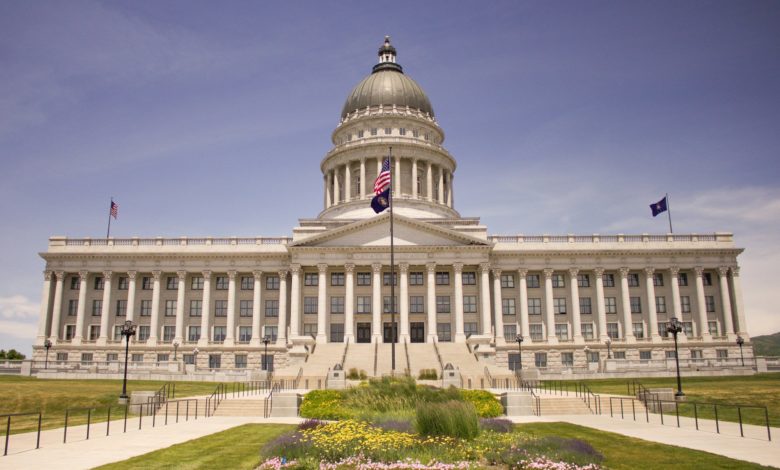Trump’s Megabill: How It Will Affect Businesses Across Taxes, Energy, and Healthcare

President Trump's sweeping "One Big Beautiful Bill" passed through Congress just ahead of his July 4 deadline, setting the stage for profound changes in the business landscape. With the bill’s approval, businesses are bracing for a shift in tax structures, energy policies, and healthcare provisions, all of which promise to reshape the economy in the years to come. While some provisions bring certainty for businesses, others, particularly in the clean energy and healthcare sectors, are causing significant controversy and concern.
Let’s take a closer look at how Trump's megabill will impact various industries, with particular focus on taxes, energy, and healthcare.
Tax Reforms: Major Changes for Both Corporations and Individuals
A key feature of Trump's megabill is its sweeping changes to the tax code, which have significant implications for both businesses and individual taxpayers. The bill aims to permanently extend the tax cuts initially put in place by the 2017 Tax Cuts and Jobs Act. For businesses, the bill makes several key provisions permanent. Companies will continue to benefit from tax breaks on property depreciation, capital investments, and research and development costs, which are critical for fostering long-term growth. Additionally, the bill retains the 20% pass-through deduction (199A deduction), benefiting small businesses and S corporations.
However, the bill is also heavily focused on the individual tax structure, with promises of eliminating taxes on tips, overtime, and car loan interest, further easing the tax burden on workers. While the top tax rate for high earners will remain at 37%, the bill’s tax changes are expected to increase disposable income for many American households, which could boost consumer spending and economic activity in the short term.
Energy Sector: A Shift Toward Fossil Fuels and Setbacks for Clean Energy
The energy sector is one of the most contentious areas of the bill, especially in regard to clean energy initiatives. While the bill phases out clean energy tax credits introduced during the Biden administration, it introduces new support for fossil fuels. The tax credits for solar and wind energy projects will be curtailed faster than expected, with provisions that could remove incentives for new wind and solar installations as early as 2027.
At the same time, the bill includes provisions for fossil fuel projects, such as classifying coal as a critical mineral eligible for government manufacturing credits. This provision has sparked a backlash from clean energy advocates, including Tesla CEO Elon Musk, who described the bill as a threat to the progress made in renewable energy development. He expressed concern that the bill's impact would result in higher energy costs for consumers and hinder the transition to a cleaner energy grid.
Despite these challenges for clean energy, some industry analysts have noted that the removal of certain excise taxes on wind and solar projects could be seen as a market-positive outcome. However, the broader effect of the bill’s energy provisions is still likely to favor fossil fuels, leaving the future of clean energy uncertain.
Healthcare: Major Cuts to Medicaid and Increased Uncertainty
The healthcare provisions of Trump’s megabill have caused significant debate, particularly in regard to Medicaid spending. The bill proposes cuts to Medicaid, with an estimated $900 billion in reductions over the coming years. These cuts are expected to particularly affect low-income families and rural healthcare providers, such as hospitals and nursing homes, which rely heavily on Medicaid funding.
Lawmakers, including Senator Susan Collins of Maine, voiced their opposition to the bill citing the adverse impact these Medicaid cuts would have on vulnerable populations. The Congressional Budget Office projects that approximately 11.8 million Americans would lose their health insurance by 2034 as a result of the healthcare provisions. The bill introduces stricter requirements for coverage, which would disproportionately affect illegal immigrants, but also leave millions of US citizens without health coverage. The healthcare provisions will likely have long-term consequences on the accessibility and affordability of healthcare for millions of Americans. Businesses in the healthcare sector, particularly those involved in Medicaid services, may face financial challenges as a result of these cuts.
Looking Ahead
As businesses and industries digest the full scope of Trump’s megabill, the broader impact on the economy remains unclear. On the one hand, tax cuts for corporations and individuals could stimulate investment and consumption, providing a short-term boost to economic growth. Businesses in sectors like technology, manufacturing, and small business ownership are likely to benefit from the continuation of tax incentives and deductions.
On the other hand, the bill’s provisions for the energy sector, particularly its tilt toward fossil fuels and curtailment of clean energy incentives, could delay the transition to renewable energy and increase energy costs in the long run. Additionally, the healthcare provisions threaten to create gaps in coverage for millions of Americans, which could reduce overall consumer spending power, particularly among low-income households. The next few months will be crucial in determining how the bill’s provisions are implemented and how businesses adapt to these changes. Industries most affected by energy policies, healthcare provisions, and tax changes will need to adjust their strategies accordingly. Additionally, as the bill is likely to face legal challenges and potential amendments, businesses will continue to monitor any shifts in policy that could impact their operations.




